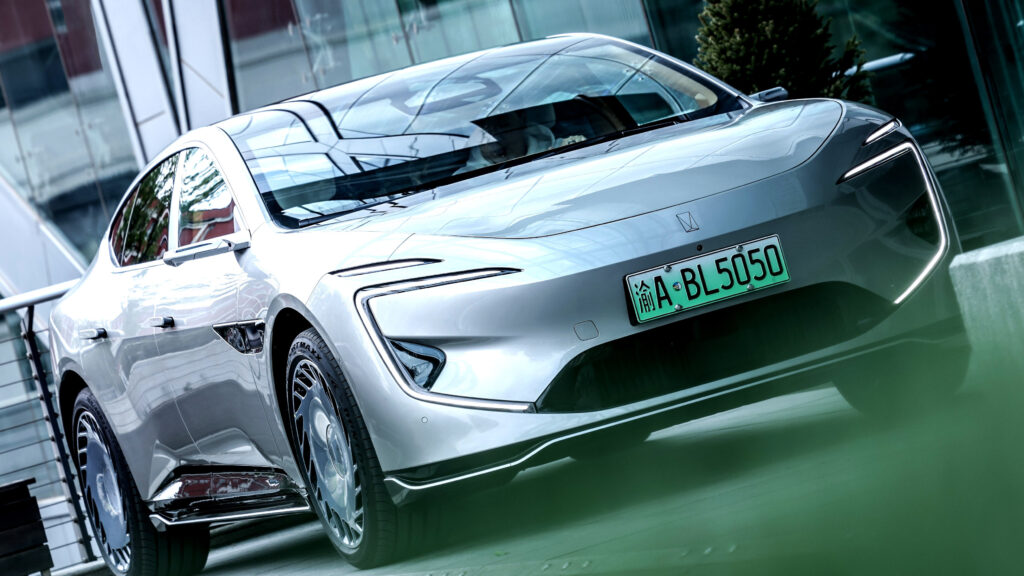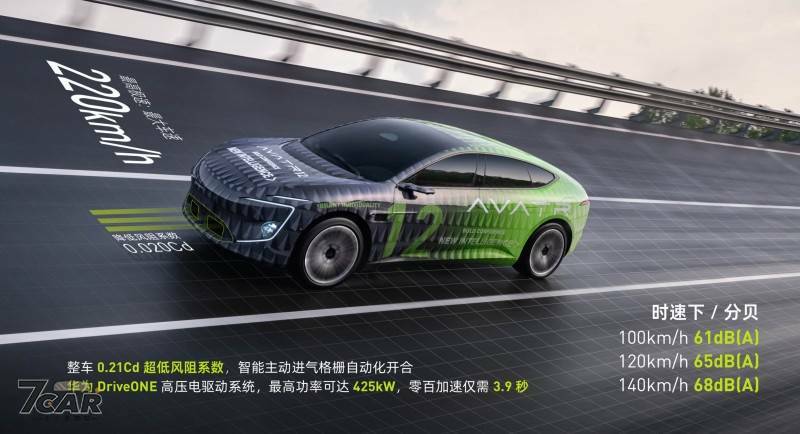In a viral video, a popular blogger reveals that Avatr’s advertised figure is one it can’t achieve

- A Chinese auto blogger claims Avatr misled the public about its drag coefficient figure.
- Avatr advertised its 12 sedan with a 0.208cd, but an independent test contradicted this.
- The controversy raises question about the validity of other low drag coefficient claims.
Drag coefficients (Cd) might not get the same attention as horsepower or range numbers, but they’re critical to the efficiency of EVs. A low Cd can drastically improve a car’s range and even allow manufacturers to use smaller, lighter batteries. That’s why automakers like Avatr, Volvo, Lightyear, and Audi love to tout their impressively low Cds. But one of them may not be as honest as it seems, and a popular Chinese blogger figured it out on his own.
Zurich Bei Le Ye is a popular auto blogger in China with over a million followers, and he personally owns an Avatr 12. According to the automaker, the electric sedan boasts a Cd of just 0.208, but Ye wanted to verify that claim. To do so, he took his own car to a wind tunnel and conducted the same test Avatr would have performed before releasing their figure. However, things didn’t go as expected. Ye’s test resulted in a Cd of just 0.281, barely better than Volvo’s EX90 SUV.
More: Aptera’s Quirky EV Has Aero Perfected By Pininfarina And 400 Miles Of Range

No Funny Business Here, Just Bad Results
It’s not as though there’s something strange going on with the test data either. The car had a Cd of over 0.28 across all speeds from 80 km/h to 140 km/h (49-86 mph). The test happened at the Tianjin China Automotive Technology and Research Centre (CATARC), which has been around since 1985. Testers followed CSAE 146-2020 standards, and were professional technicians, so they knew what they were doing. Essentially, this car just ended up with a result that is some 30 percent higher than Avatr quotes.
According to Car News China, “The blogger also claimed that the testing facility did not provide a formal report after the test day, suggesting potential intervention by the brand. A video detailing the test was reportedly taken down.” Avatr, for its part, insists the video is incorrect and has offered a reward of 5 million yuan (roughly $695,000 at current exchange rates) for anyone with information on what it calls a “black PR” campaign.
The blogger argues that Avatr should produce its original test results in full and demonstrate the 12 accomplishing the feat in public. The entire incident has called into question other astonishing claims of low Cds by other Chinese automakers like Xpeng, which says it makes the world’s most aerodynamic vehicle.
While China’s automotive industry has made impressive strides in recent years, it’s still in the process of building its reputation, and some marketing claims certainly deserve closer scrutiny. As one commenter on X put it, “Shocking but not shocking.” The industry has made great progress, but there’s still work to be done before it earns the same level of respect and trust as many legacy brands.
#Chinese #Carmaker #Faces #Backlash #Viral #Video #Claims #Lied #EVs #Drag #Coefficient


